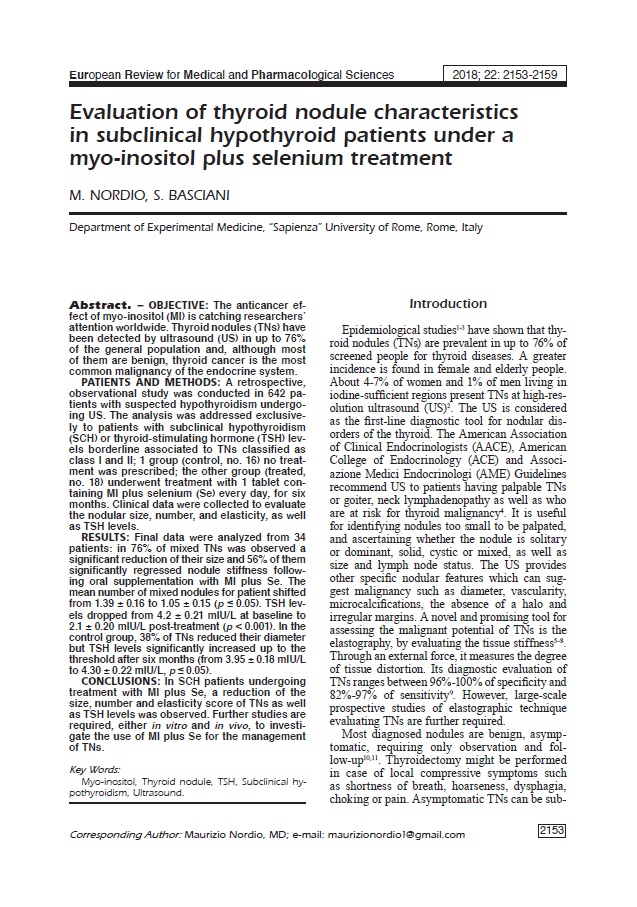Authors:
M. Nordio, S. Basciani
Objective: The anticancer effect of myo-inositol (MI) is catching researchers’ attention worldwide. Thyroid nodules (TNs) have been detected by ultrasound (US) in up to 76% of the general population and, although most of them are benign, thyroid cancer is the most common malignancy of the endocrine system.
Patients and methods: A retrospective, observational study was conducted in 642 patients with suspected hypothyroidism undergoing US. The analysis was addressed exclusively to patients with subclinical hypothyroidism (SCH) or thyroid-stimulating hormone (TSH) levels borderline associated to TNs classified as class I and II; 1 group (control, no. 16) no treatment was prescribed; the other group (treated, no. 18) underwent treatment with 1 tablet containing MI plus selenium (Se) every day, for six months. Clinical data were collected to evaluate the nodular size, number, and elasticity, as well as TSH levels.
Results: Final data were analyzed from 34 patients: in 76% of mixed TNs was observed a significant reduction of their size and 56% of them significantly regressed nodule stiffness following oral supplementation with MI plus Se. The mean number of mixed nodules for patient shifted from 1.39 ± 0.16 to 1.05 ± 0.15 (p ≤ 0.05). TSH levels dropped from 4.2 ± 0.21 mIU/L at baseline to 2.1 ± 0.20 mIU/L post-treatment (p < 0.001). In the control group, 38% of TNs reduced their diameter but TSH levels significantly increased up to the threshold after six months (from 3.95 ± 0.18 mIU/L to 4.30 ± 0.22 mIU/L, p ≤ 0.05).
Conclusions: In SCH patients undergoing treatment with MI plus Se, a reduction of the size, number and elasticity score of TNs as well as TSH levels was observed. Further studies are required, either in vitro and in vivo, to investigate the use of MI plus Se for the management of TNs.

